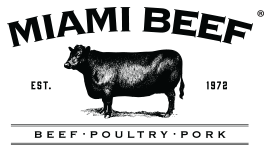

How to Make a Signature Burger for Your Restaurant
Go into any restaurant in America and we virtually guarantee you will see a hamburger (or two) on the menu. Did you know that every year, Americans consume more than 50 billion burgers per year? That works out to be about 150 burgers per person, per year! So, it’s safe to say that burgers are definitely America’s favorite food.
Have you ever wondered why people order hamburgers at a restaurant, when they could order other things that they can’t prepare at home? The truth is that restaurant burgers are typically not that different than frozen or fresh options for consumers in the grocery store. But it is how the burger is prepared at their favorite restaurant, and how it arrives at the table that impresses diners.
You see, when you grill a burger at home, you may not have all the ingredients (or the time) to prepare one that is restaurant quality; stacked high with all the delicious toppings. And so, when burger fans come to a restaurant, they want the ultimate burger experience. And that means the traditional sides, and incredible toppings.
Many restaurants go the extra mile and create their own signature burgers. A small selection of house made patties and toppings that is completely unique to their establishment. In some cases, restaurants offer it as a LTO or limited time offer, but there are many benefits and ways your business can capitalize on a signature burger for your restaurant.
Choosing an Uncommon Patty like American Kobe or Wagyu
When you want to make a statement on your menu, start with an uncommon burger that will get your customers talking? Premium American Style Kobe burgers stand above the standard patty, with a more rich flavor and superior marbling of the meat, which provides an incredibly juicy bite.
Customers see Kobe beef more often in the grocery stores, but it is still premium priced which means that average American doesn’t grill a lot of it at home. In short, American Kobe has intrigue and everyone definitely wants to try it, making it a perfect new addition to your hamburger menu.
Another option to explore is the ultra-premium Wagyu beef. Authentic wagyu is actually quite rare, and you can’t find it generally in your local grocery store. So, like American Kobe (and even more so) the Wagyu beef burger on your menu would be an exciting addition that your customers would love to explore.
Take Your Wagyu Burger Over the Top with Toppings
When you choose ultra-premium Wagyu for your restaurant menu, you want to think about the kind of toppings you plan to include. The sensation and flavors of this highest quality beef shouldn’t be masked by standard condiments; no one should really put ketchup on a Wagyu burger if they want to enjoy the full experience of the world-class beef.
But Wagyu can compliment gourmet and high-quality burger toppings. How would you dress a Wagyu or American Kobe patty for culinary success? We’d like to share some mouth-watering suggestions with you.
- Grilled poblanos (trust us)
- Grilled pineapple or pear
- Bacon
- Blue Cheese
- Baked sweet potato
- Caramelized onions
- Grilled red onion
- Shitake mushrooms
- Swiss cheese
- Smoked gouda cheese
- Muenster
With premium American Kobe or Wagyu beef as the base of your gourmet restaurant burger, it’s hard to go wrong with virtually any robust topping. Just remember to keep the flavor focus on the tender beef of the premium patty.
How to Grill Wagyu and American Kobe Burgers
You don’t need a special grill in your kitchen or surface to prepare Wagyu or American Kobe burgers. They cook with the same ease as other frozen or fresh burgers. However, you will want to make sure that the internal temperature is 160°F for food safety purposes. Undercooking any kind of beef burger can cause food borne bacteria health risks.
One step that many gourmet chef’s do when preparing a Wagyu burger is to let the patty rest under a lid without heat, to allow the natural juices to proliferate through meat, before placing it on a bun and garnishing with amazing toppings. That’s the secret to an even juicier Wagyu or American Kobe beef burger.
Did you know that every year, our team at Miami Beef® produce millions of pounds of hamburgers and patties for our commercial wholesale meat customers? All patties we produce in our USDA Regulated Headquarter plant are available fresh or individually quick-frozen (IQF). We ship nationally and to international customers, supply institutional food service providers, and the hotel and hospitality industry.
After the past 100 years, you could say we learned a thing or two about creating delicious, healthy and nutritious beef patties and flavors that consumers enjoy. If you would like to explore our Private Label services to create your own brand, or a specific burger seasoned precisely to your specifications for your restaurant or franchise, contact our team to learn more.



